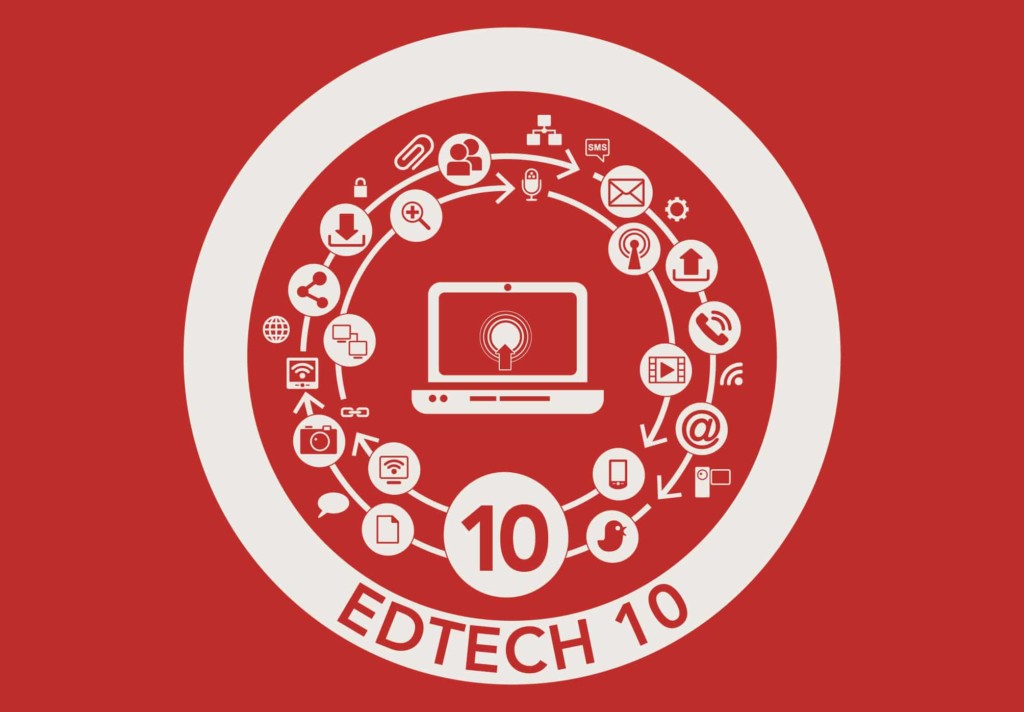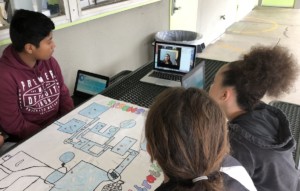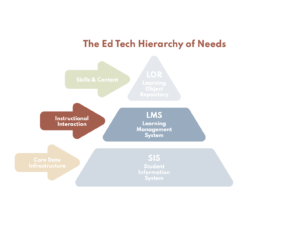EdTech 10: Busting Myths & Taking Names

This week we’re blushing here at Getting Smart. How exciting to appear on the 2013 Honor Roll of Must-Read K-12 IT Blogs alongside many of our own favorites. Looking to beef up your summer blog reading? Check out Teach 100’s Daily Ranking of Education Blogs, where we’re honored to rank in the Top 50. Speaking of rankings, here’s this week’s Top Ten.
Blended Schools & Tools
1. Rocketship’s Preston Smith shared his thoughts on what keeps him up at night, noting that some of his biggest concerns are better understanding of schools by edtech providers and teacher training & PD.
2. K12 is expanding its supplemental online course offerings for school districts — adding 20 courses to its more than 500 included new foreign language, AP, and electives like culinary arts, interior design, and entertainment marketing. Tom visited with their executive team a few weeks ago on a mythbusting assignment.
Digital Developments
3. This week President Obama visited Mooresville Middle School to deliver a speech and “to see firsthand the school’s cutting edge curriculum that maximizes the benefits of technology and digital learning,” as the White House put it. Obama used the occasion to unveil ConnectED – a program with the audacious goal of connecting 99% of America’s students to the internet through high-speed broadband and high-speed wireless within 5 years, calling on the FCC to modernize and leverage its existing E-Rate program to meet that goal. Earlier this week, FCC Commissioner Jessica Rosenworcel announced that she will champion the schools and library program of the FCC’s Universal Service Fund, commonly known as the E-Rate program.
4. NSVF updated their Ed Tech Map. EdSurge is updating and extending the map. You can request a spot on the map here.
5. Junyo launched EdLights this week that “provides actionable insights about nearly every U.S. district and school.” GigaOm points out that even though it’s a change in direction for Junyo, it’s “still a data play: it pulls together a wide range of datasets — including school performance data from each state, funding data and census data — to give publishers a way to understand the specific needs of the more than 103,000 schools in the country.” Read our coverage about how Junyo is connecting schools and services here.
6. There were some more big edpub announcements this week. Knewton announced a partnership with Houghton Mifflin Harcourt–an interesting effort to compete with the Compass-NWEA partnership and adaptive math products like Dreambox and i-Ready. McGraw-Hill Education announced that it will open a new office in Boston’s “Innovation District” this month that will “serve as a hub for the research and development of education technologies that build on the company’s portfolio of digital learning solutions for the K-12, higher education, assessment and professional markets.”
For the Core
7. ExcelinEd is doing it’s part to Set the Record Straight on Common Core – with a comprehensive list of CCSS claims versus CCSS facts.
8. This summer, PARCC will run a series of Twitter town halls to answer questions on the new, computer-based assessments aligned to the Common Core State Standards. This first session was 6/5. Keep your eye out for more sessions by following Commissioner Gist @deborahgist and #askPARCC.
9. Here at Getting Smart, we tend to get pretty excited about innovations that can yield more and better writing for students. This week’s “cool tool” comes from a collaboration between Pearson and Texthelp. Beginning in the fall of 2013, WriteToLearn will feature Texthelp’s word prediction technology. PARCC recently proposed word prediction as an allowable accommodation for students with disabilities on its Common Core writing exam. WriteToLearn is also one of the three products selected for fall classroom trials.
Let’s get Personal(ized)
10. Capella University President Scott Kenney recently opined that “To meet the growing social and economic demands for college graduates, we must provide more accessible educational options. Competency-based learning needs to be at the center of our discussions.” We agree. Check out CompetencyWorks’ Getting Your Feet Wet Reading List and Digital Learning Now!’s “Show What You Know Beats Batch Processing” infographic if competency-based learning is Greek to you.
BONUS: Inspired by the great success of SXSW, EdTechWomen are all invited to dine together again at ISTE2013! We are anxious to strengthen this incredible and much needed community of women forming in the edtech space. We hope you can join us personally, but if you are not planning to attend ISTE, please feel free to forward this on to any colleagues you think may be and would like to attend. Everyone can look forward to an enjoyable evening with a delicious buffet style dinner and drinks at Rita’s on the River… said to have the best margarita’s in San Antonio! Reservation information is at this site: http://edtechwomendineiste.splashthat.com/
Disclosures: Dreambox, CompassLearning, Curriculum Associates, Pearson, K12, ExcelinEd, and Digital Learning Now! are Getting Smart Advocacy Partners. Tom is a director at iNACOL. Juyno is Learn Capital portfolio company where Tom is partner.
###







0 Comments
Leave a Comment
Your email address will not be published. All fields are required.